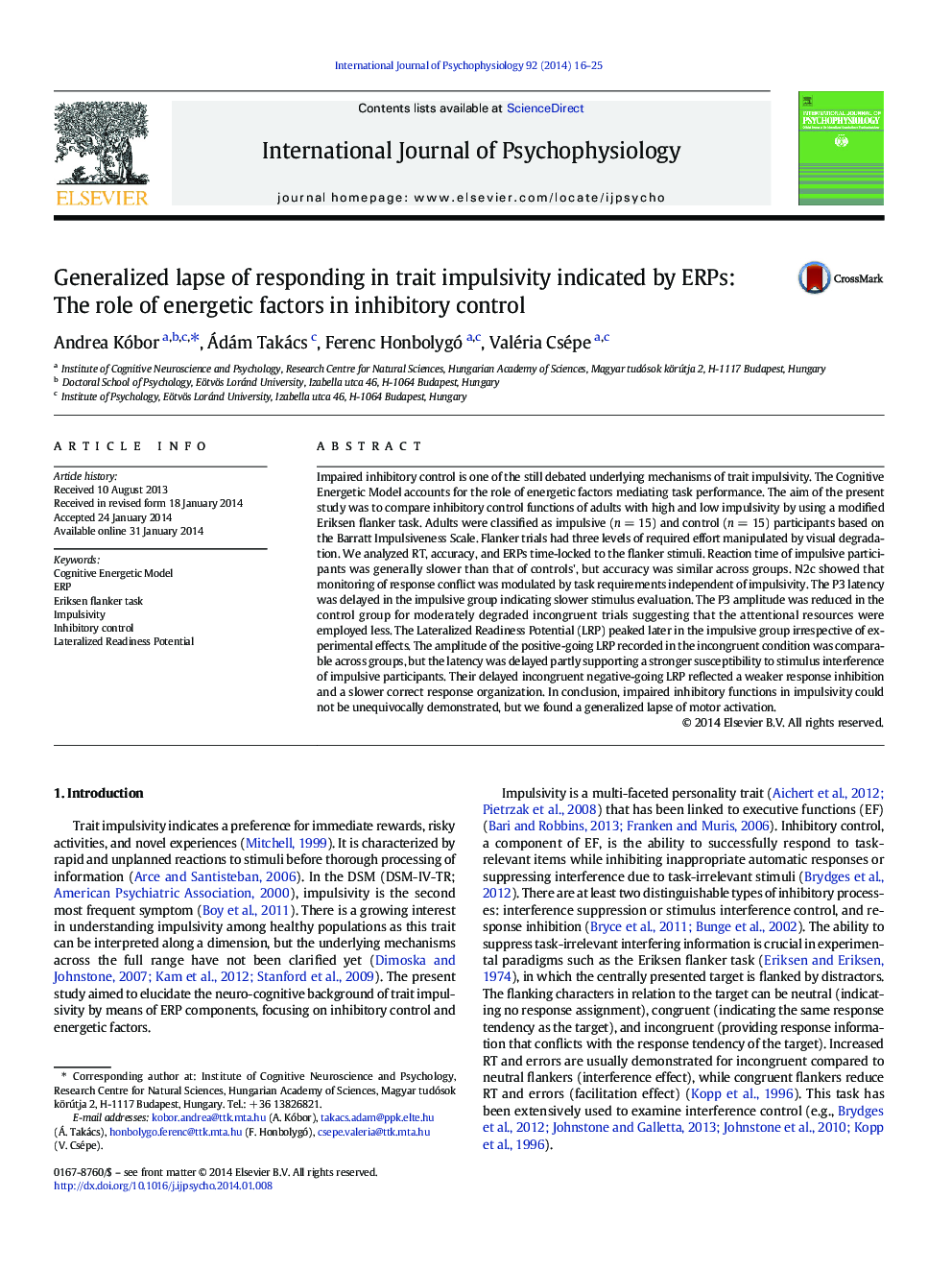| کد مقاله | کد نشریه | سال انتشار | مقاله انگلیسی | نسخه تمام متن |
|---|---|---|---|---|
| 931114 | 1474420 | 2014 | 10 صفحه PDF | دانلود رایگان |

• Impulsive adults and controls performed a flanker task with varying effort level.
• Generally slower RT and delayed P3 appeared as a characteristic of impulsivity.
• Response conflict monitoring was intact in impulsivity as shown by the N2c.
• LRP demonstrated an impulsivity related delay in organizing the correct response.
• Impaired inhibitory control in trait impulsivity could not be clearly underpinned.
Impaired inhibitory control is one of the still debated underlying mechanisms of trait impulsivity. The Cognitive Energetic Model accounts for the role of energetic factors mediating task performance. The aim of the present study was to compare inhibitory control functions of adults with high and low impulsivity by using a modified Eriksen flanker task. Adults were classified as impulsive (n = 15) and control (n = 15) participants based on the Barratt Impulsiveness Scale. Flanker trials had three levels of required effort manipulated by visual degradation. We analyzed RT, accuracy, and ERPs time-locked to the flanker stimuli. Reaction time of impulsive participants was generally slower than that of controls', but accuracy was similar across groups. N2c showed that monitoring of response conflict was modulated by task requirements independent of impulsivity. The P3 latency was delayed in the impulsive group indicating slower stimulus evaluation. The P3 amplitude was reduced in the control group for moderately degraded incongruent trials suggesting that the attentional resources were employed less. The Lateralized Readiness Potential (LRP) peaked later in the impulsive group irrespective of experimental effects. The amplitude of the positive-going LRP recorded in the incongruent condition was comparable across groups, but the latency was delayed partly supporting a stronger susceptibility to stimulus interference of impulsive participants. Their delayed incongruent negative-going LRP reflected a weaker response inhibition and a slower correct response organization. In conclusion, impaired inhibitory functions in impulsivity could not be unequivocally demonstrated, but we found a generalized lapse of motor activation.
Journal: International Journal of Psychophysiology - Volume 92, Issue 1, April 2014, Pages 16–25